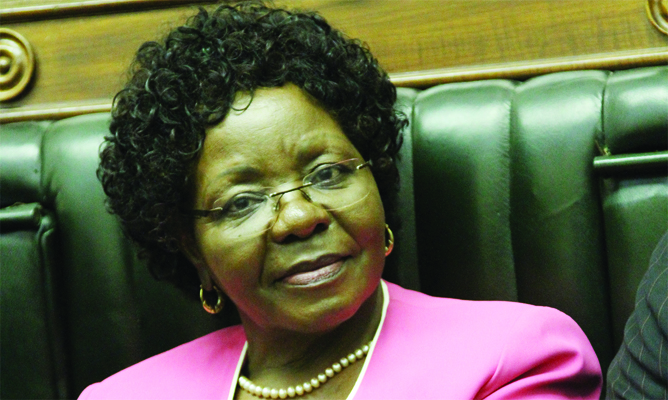
BULAWAYO — Sikhangezile Mathema’s passion is to bring comfort on anything with a roof over it.
BY MTHANDAZO NYONI
Since founding Skha’s Interior Décor in 1994, the mother of two says the company has not deviated from its founding values.
“We believe in beauty, living in beautiful surroundings and what we’re doing is something exclusive and custom-made to suit your needs. We readily accept orders for central and industrial offices, central and rural homes, lodges, hotels. Basically anything with a roof over it!” Mathema told NewsDay.
“We make curtains, cushions, comforters and interior décor paints.”
Mathema is among those in the informal sector trying to ride the economic storm. The storm that has claimed the scalp of a number of established companies has also not spared her family business. The company at some point shut down and “resurrected” early this year.
She has efficient machinery to do the job, but financial institutions are not willing to give loans.
“We are bedevilled by a number of challenges chief among them lack of working capital. We need capital for buying materials. Without working capital we will always find it difficult to survive as small-to-medium enterprises,” she said. “I already have machinery, so what I need at the moment is working capital only.”
- Chamisa under fire over US$120K donation
- Mavhunga puts DeMbare into Chibuku quarterfinals
- Pension funds bet on Cabora Bassa oilfields
- Councils defy govt fire tender directive
Keep Reading
Early this year, Small and Medium Enterprises and Co-operative Development minister Sithembiso Nyoni revealed that the government had made available a $3 million facility to finance operations for micro, small and medium-scale enterprises (SMEs).
Nyoni said SMEs could borrow at least $20 000 each. However, Mathema said she did not benefit from the facility as information about it had not reached her urging government to use many platforms so as to reach out to many people.
A recent study conducted by the Bankers’ Association of Zimbabwe revealed that lack of funding was the biggest handicap for SMEs and urged financial institutions to adopt a new approach of dealing with the sector. The study found out that the informal sector suffered from negative perception with players considered as high risk since some of their activities were perceived as illegal in nature.
Finance minister Patrick Chinamasa recently described SMEs as the “new economy” that had largely become the bedrock of Zimbabwean employment opportunities.
The government had announced plans to put SMEs under special economic zones (SEZ) based on comparative advantage each region has in the economy.
An SEZ is a geographical region that has economic laws more liberal than a country’s typical economic regulations. The objective of establishing an SEZ is to attract increased investment.
Mathema lamented business having gone down in Zimbabwe compared to 10 years back.
“When I started the company in 1994, business was booming. We were getting orders time and again, but now things have changed. Things became tough in 2007 during hyperinflation and as such we suspended operations until early this year,” she said. “However, after resumption of operations this year, things do not look rosy. As I speak right now, we haven’t attracted any big orders.”
In 1994, Mathema said, the company used to export products to South Africa and Botswana. Presently it’s hard to do that due to the economic meltdown and shortage of working capital.
“Given capital, we would like to have a two-way trade system with European countries such as Germany and France, among others. In Africa, we want to export to South Africa, Malawi, Ghana, Tanzania, Botswana, Zambia and Lesotho among other states,” she said.
ZimTrade, the country’s export promotion body, recently said small businesses should tap into the foreign market. Last month, it disseminated findings of the Zambia market research which showed that Zambia offered opportunities in sectors such as construction industry supplies, manufacturing inputs, agricultural implements/inputs, fast-moving goods — for supermarket shelves — mining supplies and protective gear, professional services — for the hospitality sector — among others.
Mathema said her company was operating from home in a garage because “we cannot afford to pay rentals as they are too high”.
“We are surviving on contract workers because of the economic situation. As such, we can’t afford to employ people on a permanent basis,” she said.
She said the government should support small-to-medium businesses financially, but not all the time.
“We need to be able to keep on going without much of government involvement,” she said.
Mathema’s vision is to establish a college where she could train young people especially orphans on practical skills.
“Our aim at Skha’s Interior Décor is to provide quality and good service, to ensure exclusive designs and excellence in all our work. We are ready to assist at all times to make over and redesign your home, taking it from the ordinary to the beautiful, not only in the arrangement of countenance [expression], but in the choice of attractive soft furnishing in tune with your lifestyle,” Mathema said.











